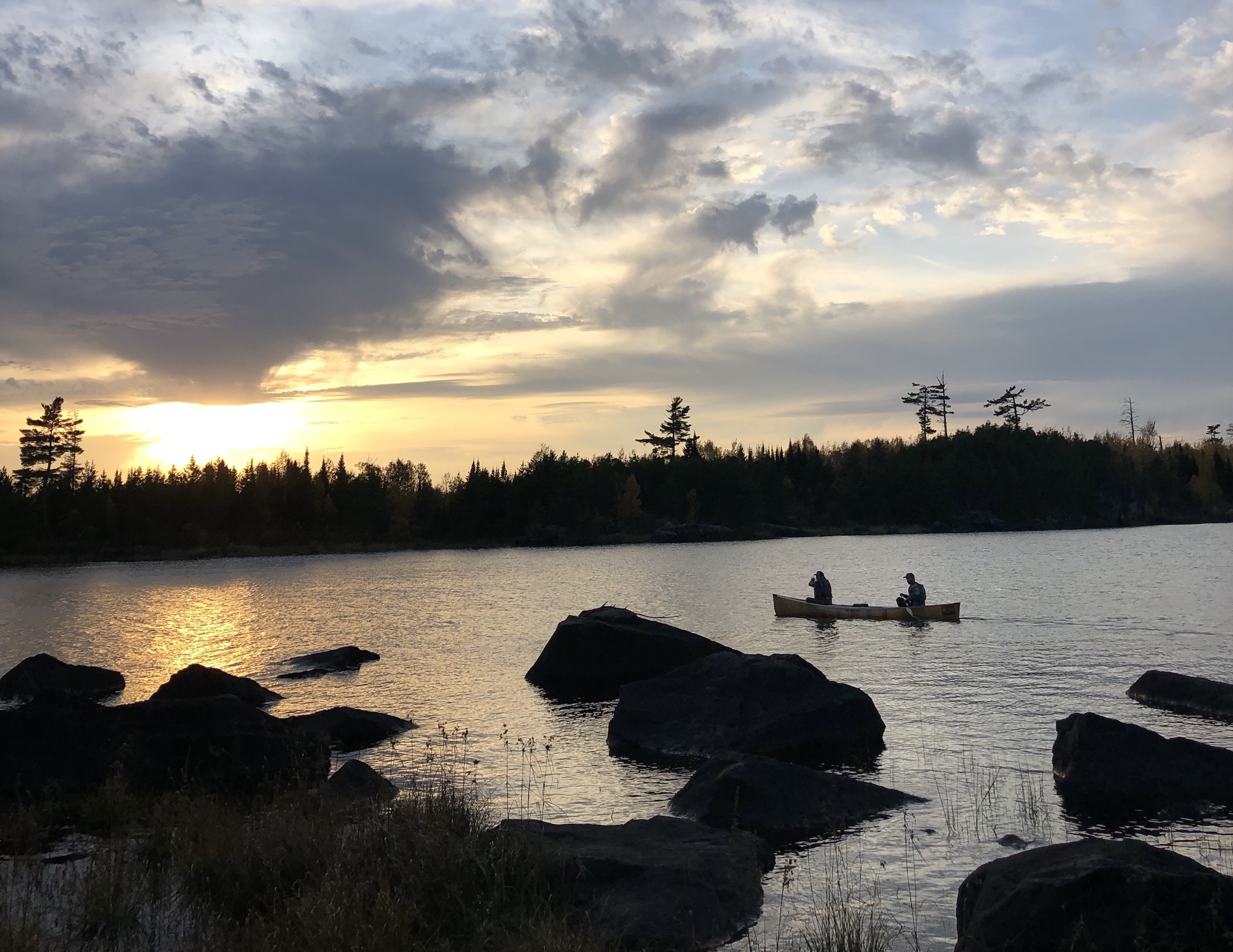The U.S. Home of Representatives handed 4 payments on Tuesday that might have resounding implications for America’s pure assets and land administration insurance policies. Though they’re unlikely to go the Senate or President Biden’s desk, their therapy on the Home flooring sends a transparent message to voters from a principally Republican-led block of legislators. It additionally exhibits the competition round conservation-related points that outdoorsmen and -women must parse forward of November’s election.
All 4 payments are in a roundabout way associated to environmental protections which were enacted throughout the Biden Administration, they usually contact on hot-button points that are likely to divide hunters and anglers alongside political traces. Two payments would reverse key elements of the administration’s agenda by withdrawing a not too long ago enacted BLM rule that elevates conservation as a land use precedence, and by rescinding a ban on mining operations close to Minnesota’s Boundary Waters. Together with different conservation teams, Backcountry Hunters and Anglers known as consideration to the dangers posed by these payments within the days main as much as Tuesday’s session.
“If handed into legislation, every of those payments would reverse public land administration choices that profit intact fish and wildlife habitat valued by hunters and anglers throughout the USA,” BHA warned in a press release. “Backcountry Hunters & Anglers strongly opposes these payments that might reverse hard-won conservation achievements supported by our members.”
The opposite two proposals that handed the Home would prohibit federal bans on lead ammunition and fishing deal with, and take away federal Endangered Species Act protections for grey wolves within the Decrease 48. Right here’s a breakdown of every invoice, and the way it might influence hunters, anglers, and conservation.
Overturning the BLM Public Lands Rule
The WEST Act, which stands for Western Financial Safety Immediately, would direct the Bureau of Land Administration to withdraw its not too long ago enacted Public Lands Rule. That rule, which was finalized simply two weeks in the past, represents a seismic shift in how the federal company manages public lands by inserting conservation and land restoration on equal footing with conventional makes use of of BLM lands similar to power improvement, mining, and livestock grazing.
“Our public lands present wildlife habitat and clear water, the power that lights our properties, the wooden we construct with, and the locations the place we make household reminiscences,” BLM Director Tracy Stone-Manning said of the brand new Public Lands Rule earlier this month. “This rule honors our obligation to present and future generations to assist guarantee our public lands and waters stay wholesome amid rising pressures and alter.”
Critics of the brand new rule like Utah Rep. John Curtis, who launched H.R. 3397, have argued that this transformation will negatively have an effect on and undermine the standard makes use of of BLM land whereas handicapping the agricultural residents who rely on them. Curtis has referred to the brand new rule as an “offensive assault on rural Utah” and as “favoring rich people and environmental teams,” in accordance with the Utah News Dispatch.
Learn Subsequent: The BLM Wants to Make Conservation a Bigger Land-Use Priority
The invoice handed by a 212-202 vote, with most lawmakers voting alongside get together traces. Three Democrats — Henry Cullar of Texas, Jared Golden of Maine, and Marie Gluesenkamp Perez of Washington — joined Republicans in supporting the invoice, whereas Brian Fitzpatrick of Pennsylvania was the one Republican consultant to vote in opposition to it.
Overturning Boundary Waters Protections
On a extra localized scale, the Superior National Forest Restoration Act would roll again the Biden Administration’s 2023 order to guard the Boundary Waters Wilderness and surrounding nationwide forest lands from mining. It might additionally require the U.S. Forest Service to reissue all cancelled mineral points within the space.
Introduced in Sept. 2023, the Division of the Inside’s Public Land Order placed a 20-year moratorium on mining in roughly 225,000 acres of public lands throughout the Superior Nationwide Forest, successfully halting Twin Metals’ attempts at constructing a copper-nickel mine there. This transfer was celebrated by sportsmen and conservationists throughout the nation, who view the Boundary Waters Canoe Space Wilderness as an vital and irreplaceable useful resource that belongs to all Americans. (On high of being a famend searching and fishing vacation spot, the BWCAW is the nation’s most extremely visited wilderness space, and the biggest of its variety east of the Rockies and north of the Everglades.)

The mine’s proponents have argued that tapping the mineral reserves within the BWCAW is a matter of nationwide and financial safety, they usually’ve referred to the Biden Administration’s mineral withdrawal as an assault on the agricultural communities that they are saying would profit from the mine. This consists of Rep. Pete Stauber, who launched the Superior Nationwide Forest Restoration Act to “take away the obstacles put in place by the Biden Administration” and “safely ship Minnesota’s mineral wealth to the nation,” the Minnesota Reformer studies.
In the meantime, conservation teams like Sportsmen for the Boundary Waters have denounced Stauber’s proposal as setting a harmful precedent for America’s wilderness areas. These teams and others have additionally identified that Stauber represents the three Minnesota counties that might profit probably the most financially from the Twin Metals mine.
Learn Subsequent: The Wilderness War: Ice Fishing the Boundary Waters Canoe Area Wilderness
“H.R. 1395 would unravel [the protections achieved in 2023], instantly threatening our cherished out of doors traditions in Northeast Minnesota, once more making the Quetico-Superior area susceptible to poisonous mining practices,” Sportsmen for the Boundary Waters government director Lukas Leaf stated in a Facebook post main as much as the Home vote. “This laws flies within the face of those that love clear water, wildlife, and the world-class fishing and searching alternatives the Boundary Waters offers.”
Stauber’s invoice handed the Home by a vote of 212-203.
Blocking Lead Ammo and Sort out Bans
The Protecting Access for Hunters and Anglers Act seeks to bar the federal authorities from imposing any bans on lead ammunition or fishing deal with on federal lands. This invoice, launched by Rep. Bob Wittman of Virginia, was floated in direct response to a Last Rule made by U.S. Fish and Wildlife Service in 2022 that expanded searching and fishing at 18 totally different Nationwide Wildlife Refuges throughout the nation, whereas additionally banning using lead ammo and deal with at those self same refuges by 2026. Though some hunters and anglers supported the rule as a method to defend fish and wildlife from lead poisoning, many sportsmen’s teams opposed the rule on the outset, calling it a “bait-and-switch” tactic that was not primarily based on the very best out there science.
Learn Subsequent: USFWS Will Expand Hunting and Fishing at 18 National Wildlife Refuges While Phasing Out Lead Ammo and Tackle There
H.R. 615 handed 214-201, with solely two Republican representatives voting in opposition to it and 7 Democrats supporting it. A few of the invoice’s opponents known as it an try by particular curiosity teams to dam any gun-related laws, whereas its supporters framed it as a approach to make sure that America’s hunters and anglers aren’t priced out of the out of doors sports activities they love as a result of larger value of non-lead ammo and fishing deal with.
Delisting Grey Wolves
A proposal that might take away ESA protections for all grey wolves within the Decrease 48 made it via the Home by a narrower margin relative to the opposite three payments. Led by Colorado Rep. Lauren Boebert, the Trust the Science Act handed 209-205. This invoice would require the Division of the Inside to reinstate a 2020 rule that eliminated grey wolves from the Endangered Species Listing however that was overturned by a federal decide in 2022.
H.R. 764 seeks to return administration of grey wolves to the states. And it’s introduction by Boebert displays the unease being felt throughout her own residence state as rural Coloradans specific their issues with the state’s ongoing wolf reintroduction efforts. Within the days and weeks main as much as the Home vote on H.R. 764, a number of stockgrowers associations sent letters to Gov. Jared Polis asking Colorado Parks and Wildlife to euthanize a few of the wolves which were blamed for killing cattle. CPW denied that request.
Learn Subsequent: As Wolf Management Debate Reaches a Fever Pitch, the Interior Department Hires a National Mediator
On the heels of Tuesday’s vote, Boebert and different supporters, together with Washington Rep. Dan Newhouse, pointed to the restoration of grey wolves in Western states like Montana and Idaho, the place present wolf populations are nicely over the restoration objectives that had been initially set by the USFWS.
“The grey wolf is absolutely recovered and ought to be delisted within the decrease 48 states,” Boebert stated in a press release Tuesday. “Immediately’s passage of my Belief the Science Act empowers states and places folks forward of violent predators.”
